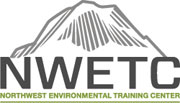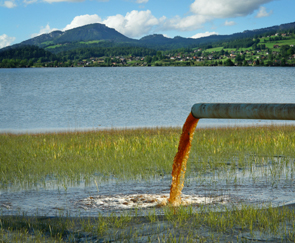|
Description: Meeting water quality standards in surface and ground water bodies, as well as discharge flows, can be complicated by the lack of adequate information on the sources of contamination. And making an incomplete or inaccurate assessment of sources contributing to the impairment of water bodies can be costly and time consuming, resulting in a failure to meet or maintain compliance with critical water standards. This two-day course provides an in-depth examination of problems that can be approached using contaminant trackdown studies. Participants will learn about methods for identifying critical sources of contamination such as nutrients, pathogens and toxins, in surface and ground water resources, and in municipal and industrial distribution systems. In addition, they will take away practical and realistic tools for saving time and money by using contaminant trackdown studies to tackle impaired water scenarios ranging from small-scale systems, such as lakes, to complex watersheds and municipal distribution systems. Examples and case studies, as well as several hands-on breakout sessions, will be included to provide participants with real-world experience in conducting a contaminant trackdown study. California Department of Public Health, CDPH, Approved for contact hours *Reduced tuition is available for Native American tribes, government employees, nonprofits, students and AFS, NAEP, NEBC, TAEP members. You may register online or by calling the Northwest Environmental Training Center at (425) 270-3274. Online registration is strongly encouraged. Please wait to receive a course confirmation email, roughly one month prior to the class, before making any travel arrangements.
Intended Audience: Decision makers and staff working in watershed organizations, conservation districts, municipalities and industries, watershed planning and land-use managers, water resource engineers, hydrologists, fisheries biologists, as well as consultants assisting these entities meet water quality standards.
Continuing Education Units: 1.30 CEUs
Course Topics
Topics covered in this course include: · Overview of contaminant issues that impair water quality. · Scenarios where use of a contaminant trackdown study can help development of solutions for impaired waters or contaminated effluents. · Key issues in selection of appropriate tracers to target key contaminants, such as nutrients, pathogens, heavy metals and PCBs. · Trackdown approaches that include use of characteristics inherent in the contaminants of concern, co-occurring contaminants, GIS, or intentional injection of non-toxic tracers. · Critical aspects of contaminant trackdown studies, including correlation of tracer and contaminant transport and fate, sampling frequency and spatial distribution, and data analysis and constraints. · Case studies and examples of real-world problems will be included throughout the course. · Three breakout sessions will be included to provide hands-on exercises for participants.
About the Instructor
 Dr. Laurel J. Standley, Principal of Clear Current, is an independent environmental consultant with over twenty years experience in water quality and policy. Her areas of expertise include developing water management plans, tracking sources of contamination to water resources, and protecting freshwater resources for uses such as safe drinking water sources, healthy fisheries, and reduced flooding. Examples of her work include the following: - Developed an innovative strategy for identifying sources of pathogens and nutrients to drinking water resources that is now being used to track contamination in New York City’s source waters. - Served as a Member and Chair of the Delaware River Basin Commission’s Toxics Advisory Committee developing a Total Maximum Daily Load (TMDL) for toxic substances. - Developed a water management plan for a Middle Eastern country, analyzing current water demand and technical, policy, and education conservation strategies to reduce consumption and minimize the need for increasing desalination capacity. Dr. Standley received her B.S. in Chemistry from California Polytechnic State University, a Ph.D. in Chemical Oceanography from Oregon State University, and a M.A. in Urban Affairs and Public Policy from the University of Delaware.
What to Bring
Pen or pencil to take notes. Please bring paper if you do not want to write your notes on your manual. Lunch will be on your own but drinks and snacks will be provided throughout each day.
Billing Information
In order to guarantee a space in a course, the tuition must be paid in full TWO WEEKS before the first day of the course by either check or credit card. State and government agencies paying with a purchase order are allowed payment under the two-week time frame if a copy of the purchase order is received by NWETC.
If You Need to Cancel
Cancellations*-
With 31 or more days notice, we will offer a 100% refund or credit towards a future course. The credit is good for one year and may be applied to any course.
- With 30-8 days notice, we will offer a course credit towards a future course. The credit is good for one year and may be applied to any course.
- With fewer than 8 days notice, there is no course credit available
*Please note that attendee replacement is welcome at any time
Disability Accommodations
Disability Accommodations:To request disability accommodations, please contact us at info@nwetc.org or 425-270-3274 at least 30 days prior to the event.
|










